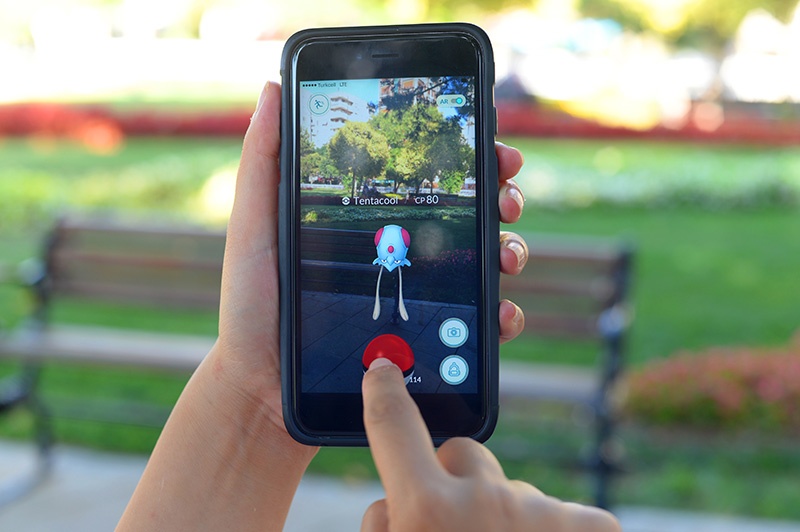Balancing Privacy and Security in the Pokémon Go Era

“Those who would give up essential liberty to purchase a little temporary safety
deserve neither liberty nor safety.”
~ Ben Franklin
When Ben Franklin wrote those words almost 300 years ago, he was addressing a concern about exchanging physical and intellectual liberties for security – what the people would give to the king in exchange for protection.
Today, we willingly sacrifice liberties in exchange for security. Yet, in our hyperconnected world, we face a similar challenge as we consider trading privacy for security, simplicity, and customization. The digitalization of the world is in full swing, and debates about privacy and security dominate discussions. Just during these summer months, terrorist events, cyber crimes, and crazes like Pokémon Go have shown just how connected we are to one another and how vulnerable we are as a result.
Next time you ride on a subway or bus, or walk through an airport or mall, look around. You see more faces illuminated by the backlight of a device than fixed on someone with whom they’re conversing. Even those who predominantly strive for human engagement likely are ‘living’ much of their daily life online. We use the internet to create professional connections, find dates online, post friendly ‘Snaps,’ ‘Wall Posts,’ and ‘Tweets’ to erase the distance between friends, shop and bank online, and even augment our reality. Hyperconnectivity is real, barriers are increasingly porous, and we’ve reached an inflection point that will have impacts across all industries, geographies, and cultures.
The tradeoff between personal privacy and collective security is a pressing decision.
We all know that our online life comes with a tradeoff – namely, privacy and security. When we’re busy online, it is easy to feel like we are safe and protected in the bubble. We willingly offer personal data to maintain simplicity, access, apps, and more, trusting those requesting the information without really understanding their intent or how they will use it. The irony is that we know that this feeling is an illusion.
Global news and water cooler conversations are dominated with cyber issues ranging from the Turkish coup to the DNC hack. From those who are comfortable with the sense that ‘there is no such thing as privacy anymore’ to those who go to great lengths to protect their personal information (i.e., no online footprint) the topic is on the forefront of everyone’s mind.
Our ongoing global research and executive interviews around the topic of security has illuminated concerns about identity theft, online privacy breaches, inability to spot nefarious online activity, and related issues. We have considered futures without cyber, without free knowledge or access to information, and conversely, those in which all information is accessible. These divergent potential futures are forcing organizations to explore ways to Future Proof® themselves in the face of ever changing societal perceptions about privacy and security.
We allow ourselves to enjoy the illusion of security.
Of course, not all threat is cyber. Events like the nightmarish Bastille Day attack are stark reminders that online bubbles can’t protect us. Threats take many forms, and bullets and bombs don’t discriminate.
So, does individual privacy matter in the face of security? To some, the answer is no. Yet, we’re seeing the lines between privacy and security blurring more every day. Individuals and organizations alike are challenged to clarify what security means, what it looks like, and what we’re willing to trade for it.
Are we willing to sacrifice privacy for increased security? Some argue we already do, whether or not we are aware of it. Others argue it is a necessary evil we tacitly agree to every time we log on. Ultimately, privacy is personal. Security is about people. Each of us is impacted by attacks, hacks, and information leaks even if we’re not directly involved. As that continues to be the case (as it will), organizations will have to consider the measures they will able to take to provide an acceptable level of comfort and assurance to the individuals who are willing to exist in their connected environment. What does the world look like when individuals are no longer willing to trade data or privacy for ease of use and customization?
It’s time for organizations to understand the fluid balance between privacy and security and changing individual willingness to make sacrifices on their behalf.
{{cta(‘b1d0efef-1663-4f2f-91aa-1cddb265d3db’)}}
- Categories
- Security and Resilience

 About the Authors
About the Authors